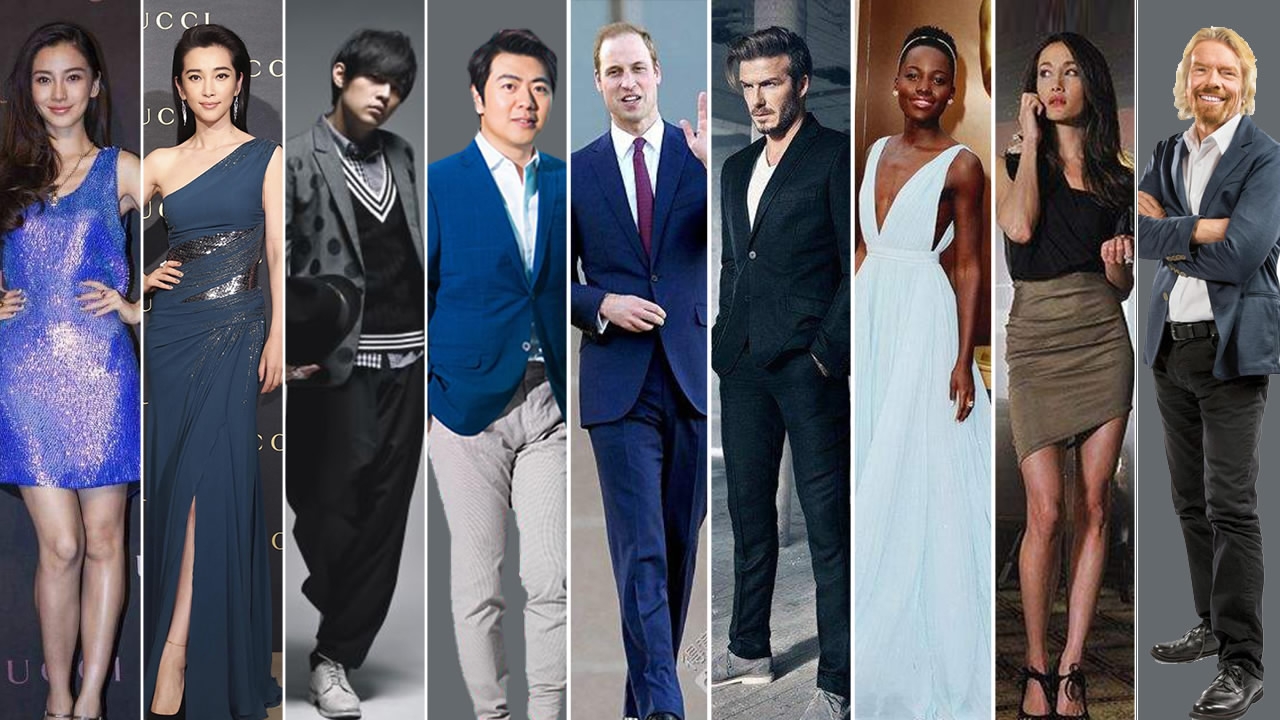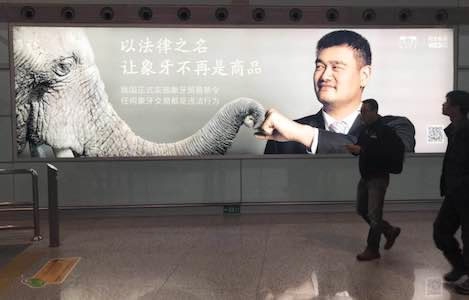
Tech & Sci
12:32, 14-Mar-2018
Star-studded campaign to strengthen China's fight against illegal wildlife trade
Alok Gupta

Wildlife conservation organization WildAid has partnered with outdoor advertising company JCDecaux to launch a star-studded public awareness campaign to end illegal wildlife trade.
Former basketball player Yao Ming, Chinese star Li Bingbing, musician Jay Chou, pianist Lang Lang, model Angelababy, along with international icons Prince William, David Beckham, Lupita Nyong’o, Maggie Q and Sir Richard Branson will be part of the drive, WildAid said.
Under the theme “when the buying stops, the killing can too”, the partnership aims to explain the devastating impacts of buying wildlife products.
Most of the buyers of wildlife products remain aloof of the facts like how global ivory trade results in brutal poaching of more than 30,000 African elephants every year.
The campaign, translated in six languages, will be displayed in more than 10 countries and regions – China, its Hong Kong and Taiwan, Japan, Thailand, Vietnam, USA, Uganda, Kenya, and Tanzania – by the end of 2018.
In China where the focus is on the recent ban on ivory sales, more than 600 billboards featuring Yao Ming have been already displayed in Beijing airport and other major cities to raise awareness.
Similar campaign will be rolled out in Tanzania this month, and shark protection messages will be promoted in Hong Kong and Thailand.
In a statement to CGTN Digital, WildAid CEO Peter Knights pointed out that JCDecaux has been instrumental in extending WildAid’s reach to millions of consumers across the world. “We will be able to reach more people in more places with messages that will help protect imperiled wildlife.”

In the recent years, campaigns by stars like Yao Ming has reduced demand for ivory and shark fin soup in China. /WildAid Photo
In the recent years, campaigns by stars like Yao Ming has reduced demand for ivory and shark fin soup in China. /WildAid Photo
Wildlife experts believe a public awareness drive is crucial in the wake of China’s ban on ivory and rhino horns. A large number of people in China and other parts of the world are still unaware of the legal status of wildlife products.
Campaigns are helping reduce illegal wildlife trade but it’s still a long way to go
According to WildAid and other conservation groups, awareness drives have drastically reduced the trade and consumption of banned wildlife products, but it’s much below the target set by environmentalists.
A recent World Wildlife Fund (WWF) survey done before China’s ivory ban was implemented revealed that nearly 55 percent of previous ivory buyers have stopped purchasing ivory products, keeping in view the forthcoming ban.
However, the situation is grim in tier II and tier III Chinese cities where awareness drives remain low. "The ivory purchase is moving from metropolitan first-tier cities to provincial third-tier cities, due to a growing conversion rate of consumers who have never bought ivory into repeat buyers over the past three years," the report maintained.
A WildAid study released during Chinese Lunar Year claimed government crackdown and intense Jackie Chan and Yao Ming campaigns have reduced shark fin soup consumption in China by more than 80 percent.
In a similar study, WWF data released early this week claimed that campaigns and China’s effort have reduced shark fin import in Hong Kong by over 50 percent.
An estimated 100 million sharks are killed each year, with parts of up to 73 million ending up in soup. According to IUCN, unsustainable hunting and huge consumption have put 25 percent of shark and ray species under the category “threatened with extinction.”

SITEMAP
Copyright © 2018 CGTN. Beijing ICP prepared NO.16065310-3
Copyright © 2018 CGTN. Beijing ICP prepared NO.16065310-3